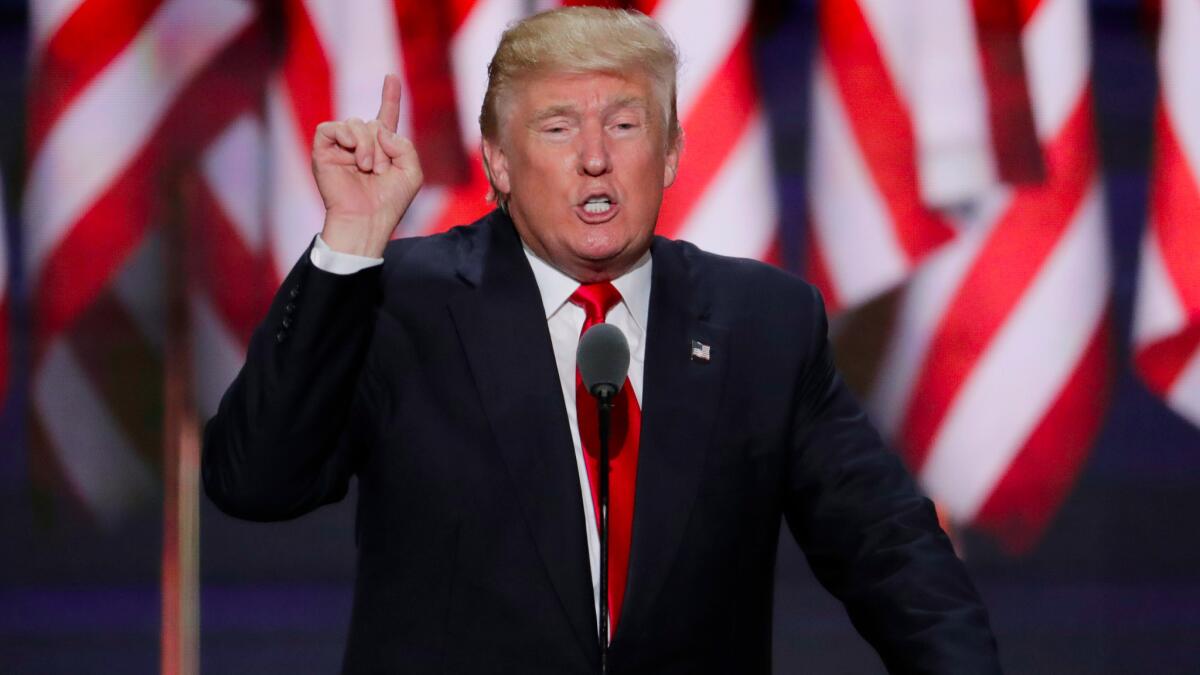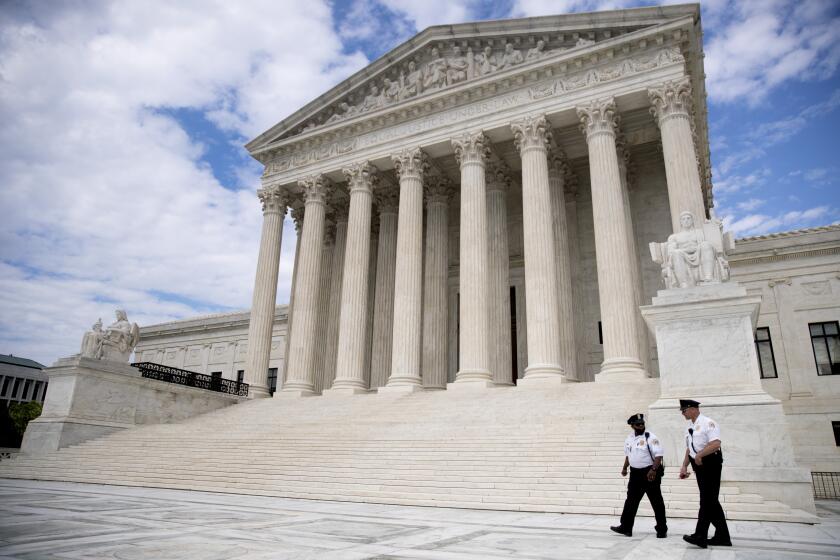Editorial: Did anyone expect Trump to tiptoe his way back out of the china shop?

As President Trump clings to the lie that he was somehow cheated out of a second term, a canard that further undermines Americans’ faith in our democracy, his aides are busy working to extend the damage Trump has done to the government itself in ways that will be all the more difficult for President-elect Joe Biden to repair. Which should surprise no one. When Trump bulled his way into the china shop four years ago, no one expected him to tiptoe back out.
So what nefarious efforts are underway? Trump summarily sacked Defense Secretary Mike Esper on Monday, setting a line of dominos falling in the top Pentagon ranks. Among those resigning was acting policy director James Anderson, whose duties were assigned to retired Brig. Gen. Anthony Tata, who once referred to President Obama as a “terrorist leader” and whose Islamaphobic tweets earlier cost him that very same top Pentagon job.
Meanwhile, the elevation of Christopher Miller to acting Defense secretary came with the appointment of Trump loyalist Kash Patel as his chief of staff. Patel is a former aide to Rep. Devin Nunes (R-Tulare) and was directly involved in Nunes’ ignominious efforts to undermine the investigation into possible Russian meddling in the 2016 presidential election.
It’s time to start preparing for the transfer of power to Biden
Trump also reportedly is eager to fire FBI Director Christopher A. Wray and CIA Director Gina Haspel, which would leave the two core agencies responsible for national security without clear leadership as the nation transitions from one administration to the next. Meanwhile, he has hired Michael Ellis as the National Security Agency’s general counsel, shifting a loyalist from the ranks of political appointments — who an incoming president could easily get rid of — to a career appointment with job protections. Ellis is another Nunes alumnus and, after moving to the White House, was among those who helped Nunes gain access to intelligence reports as he sought to defend Trump during the Russia investigation by the House Intelligence Committee.
Combined with the turmoil at the Pentagon, experts worry that Trump’s actions pose a significant risk to national security even as Trump’s motives remain murky. He could just be settling scores; he could be trying to sabotage a smooth transition to the next administration; he could, in the eyes of some alarmists, be filling the Pentagon with political loyalists ahead of some late-year military action, such as an accelerated troop withdrawal from Afghanistan.
Elsewhere, in his continuing efforts to reduce the role of science in reaching policy decisions, Trump recently removed Michael Kuperberg from a post overseeing the fifth National Climate Assessment, a report on climate change the federal government compiles as part of an international push to reduce global warming. Trump reportedly plans to replace him with David Legates, a deputy assistant secretary at the National Oceanic and Atmospheric Administration who has a history of denying the connection between human behavior and rising global temperatures. (Remember, Trump has already withdrawn the United States from the 2015 Paris agreement to limit carbon emissions.)
The legal arguments for throwing out the Affordable Care Act that the Supreme Court heard Tuesday are laughable, but the case is deadly serious.
In the weeks before the election, as polls showed Trump trailing badly, regulators in a range of federal agencies began rushing to finalize a number of proposed rules in hopes of getting them on the books before inauguration day. Regulations made by one administration can be changed by the next, but if the original rules were adopted following proper procedures, it can be hard and time consuming for a new presidential team to undo them.
After election day, White House Chief of Staff Mark Meadows reportedly called on aides to focus on the rule changes and executive orders that the administration could issue in its waning days. According to Politico, the objectives include tightening restrictions on the H-1B visas employers use to hire foreign workers for some specialized occupations (often in the tech industry) and allowing parents in public school districts that are teaching students remotely to use COVID-19 aid for tuition at private or parochial schools — creating, in essence, a limited school voucher system.
There is nothing unusual about a president in the dying days of his term trying to accomplish as much as he can to further cement a legacy. But Trump doesn’t seem to care how history will view him (he barely cares what his contemporaries think of him). He stormed Washington as an agent of change to drain the swamp, shake things up and make America great again (a greatness he seemed to anchor in a whitewashed view of the 1950s). And it’s undeniable that he has, indeed, shaken things up, but not in any way that a rational mind would consider an improvement.
So what else do Trump and his surviving team of loyalists have in store for the country over the next 60-some days? Who knows, but the sooner this P.T. Barnum folds up his big top and retires to Florida, the better off the nation will be.
More to Read
A cure for the common opinion
Get thought-provoking perspectives with our weekly newsletter.
You may occasionally receive promotional content from the Los Angeles Times.











